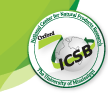Document Type
Oral Presentation
Location
Oxford Convention Center, 102 Ed Perry Boulevard Oxford, MS 38655
Event Website
https://www.oxfordicsb.org/
Start Date
26-4-2023 11:30 AM
Description
Examples from the past show that a supply chain disruption, or a series of such disruptions, generates sudden spikes in consumer demand, and that abrupt, unplanned changes to the supply and demand in botanical materials lead to an increase in adulteration and fraud. When this happens due to simultaneous interruptions of numerous ingredients based on a global pandemic, as in the case of COVID-19, it is predictable that unscrupulous suppliers and sellers of botanical ingredients will attempt to take advantage of supply shortages by manufacturers of herbal medicines and dietary supplements to sell them lower-quality or sometimes adulterated materials.
Among the botanical ingredients with the largest sales increases due to the COVID-19 pandemic are ashwagandha (Withania somnifera) root, elder (Sambucus nigra, Viburnaceae) berry, echinacea (Echinacea purpurea and E. angustifolia, Asteraceae) herb/root, and oregano (Origanum vulgare, Lamiaceae) herb. While adulteration of ashwagandha root and oregano herb is well documented, data on the quality of commercial elder berry and echinacea root dietary supplements is scarce. A new initiative by the ABC-AHP-NCNPR Botanical Adulterants Prevention Program attempts to assess the extent of adulteration in five popular herbal dietary supplement ingredients, including echinacea and elder. Adulteration of echinacea extracts appear to be uncommon and mostly related to the presence of undeclared Echinacea species. Contrarily, adulteration of elder berry extracts appears to be common. An investigation into the authenticity of 31 commercial elder berry dietary supplements sold in the United States showed that only 10 complied with the label claim. The presentation provides details on the impact of COVID-19 on the botanical ingredient market with a focus on some of the most popular dietary supplement ingredients.
Recommended Citation
Gafner, Stefan, "The Impact of COVID-19 on the Supply Chain and Quality of Botanical Ingredients" (2023). Oxford ICSB. 15.
https://egrove.olemiss.edu/icsb/2023_ICSB/schedule/15
Publication Date
April 2023
Accessibility Status
Searchable text
Included in
The Impact of COVID-19 on the Supply Chain and Quality of Botanical Ingredients
Oxford Convention Center, 102 Ed Perry Boulevard Oxford, MS 38655
Examples from the past show that a supply chain disruption, or a series of such disruptions, generates sudden spikes in consumer demand, and that abrupt, unplanned changes to the supply and demand in botanical materials lead to an increase in adulteration and fraud. When this happens due to simultaneous interruptions of numerous ingredients based on a global pandemic, as in the case of COVID-19, it is predictable that unscrupulous suppliers and sellers of botanical ingredients will attempt to take advantage of supply shortages by manufacturers of herbal medicines and dietary supplements to sell them lower-quality or sometimes adulterated materials.
Among the botanical ingredients with the largest sales increases due to the COVID-19 pandemic are ashwagandha (Withania somnifera) root, elder (Sambucus nigra, Viburnaceae) berry, echinacea (Echinacea purpurea and E. angustifolia, Asteraceae) herb/root, and oregano (Origanum vulgare, Lamiaceae) herb. While adulteration of ashwagandha root and oregano herb is well documented, data on the quality of commercial elder berry and echinacea root dietary supplements is scarce. A new initiative by the ABC-AHP-NCNPR Botanical Adulterants Prevention Program attempts to assess the extent of adulteration in five popular herbal dietary supplement ingredients, including echinacea and elder. Adulteration of echinacea extracts appear to be uncommon and mostly related to the presence of undeclared Echinacea species. Contrarily, adulteration of elder berry extracts appears to be common. An investigation into the authenticity of 31 commercial elder berry dietary supplements sold in the United States showed that only 10 complied with the label claim. The presentation provides details on the impact of COVID-19 on the botanical ingredient market with a focus on some of the most popular dietary supplement ingredients.
https://egrove.olemiss.edu/icsb/2023_ICSB/schedule/15

